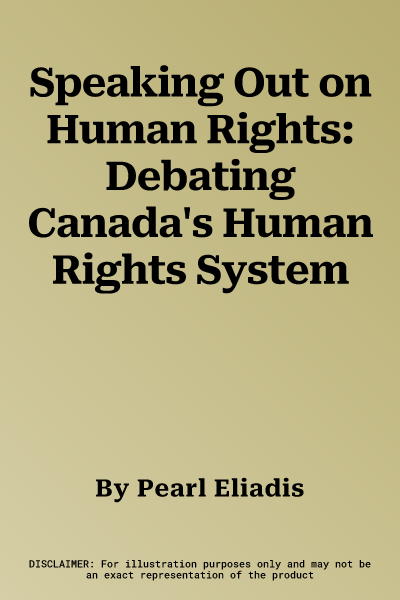Canadians like to see themselves as champions of human rights in the
international community. Closer to home, however, the human rights
system in Canada - particularly its public institutions such as
commissions and tribunals - has been the object of sustained debate and
vehement criticism, based largely on widespread myths about how it
works. In Speaking Out on Human Rights, Pearl Eliadis explodes these
myths, analysing the pervasive distortions and errors on which they
depend. Canada's human rights system, a unique legal tradition operating
within a powerful modern constitution, is a fundamental mechanism for
ensuring the practical application of our national commitment to
tolerance and inclusion. Drawing on in-depth interviews with Canada's
leading human rights experts and extensive original research, Eliadis
explores the evolution of commissions and tribunals as vehicles of
public policy and considers their mandate to mediate rights conflicts in
such contested areas as hate speech, religious freedoms, and sexuality.
She provides a frank assessment of how Canada's human rights system
functions and argues that misplaced critiques have prevented urgent and
necessary discussions about the reforms that are needed to improve
fairness and equality before the law and to ensure institutional
independence, impartiality, and competence. Speaking Out on Human Rights
shows how our human rights system plays a unique and important role in
the rights revolution both in Canada and internationally and offers
promising avenues for its future development.

